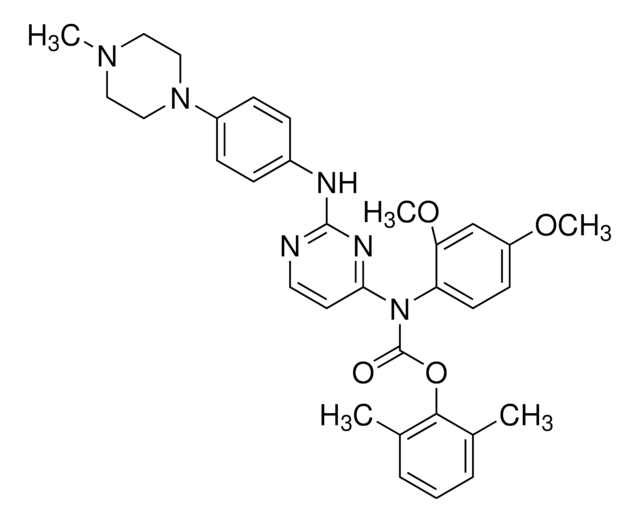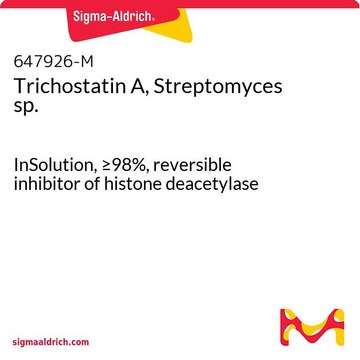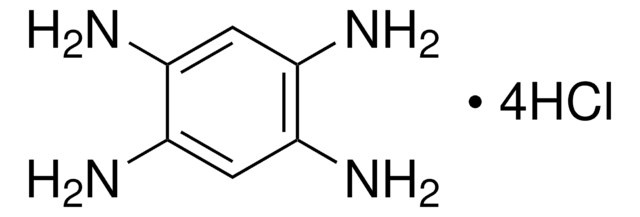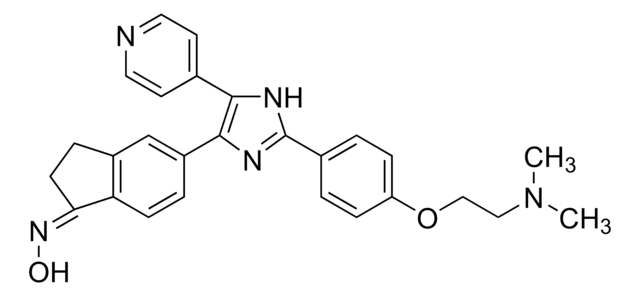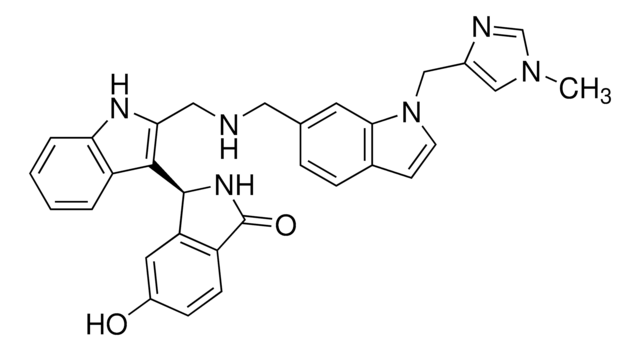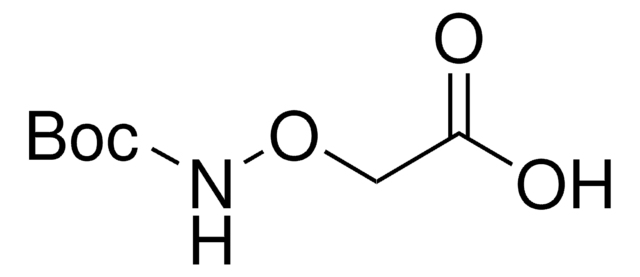SML0084
IM-12
≥98% (HPLC)
Sinonimo/i:
3-(4-Fluorophenylethylamino)-1-methyl-4-(2-methyl-1H-indol-3-yl)-1H-pyrrole-2,5-dione
About This Item
Prodotti consigliati
Saggio
≥98% (HPLC)
Forma fisica
powder
Condizioni di stoccaggio
desiccated
Colore
yellow-orange
Solubilità
DMSO: ≥9 mg/mL
Temperatura di conservazione
2-8°C
Stringa SMILE
CN1C(=O)C(NCCc2ccc(F)cc2)=C(C1=O)c3c(C)[nH]c4ccccc34
InChI
1S/C22H20FN3O2/c1-13-18(16-5-3-4-6-17(16)25-13)19-20(22(28)26(2)21(19)27)24-12-11-14-7-9-15(23)10-8-14/h3-10,24-25H,11-12H2,1-2H3
ZKJAZFUFPPSFCO-UHFFFAOYSA-N
Azioni biochim/fisiol
Codice della classe di stoccaggio
11 - Combustible Solids
Classe di pericolosità dell'acqua (WGK)
WGK 3
Punto d’infiammabilità (°F)
Not applicable
Punto d’infiammabilità (°C)
Not applicable
Certificati d'analisi (COA)
Cerca il Certificati d'analisi (COA) digitando il numero di lotto/batch corrispondente. I numeri di lotto o di batch sono stampati sull'etichetta dei prodotti dopo la parola ‘Lotto’ o ‘Batch’.
Possiedi già questo prodotto?
I documenti relativi ai prodotti acquistati recentemente sono disponibili nell’Archivio dei documenti.
Articoli
Naive pluripotent stem cells are located within the epiblast of mature blastocysts. These primitive “ground-state” cells may be cultured in vitro using specialized media and small molecule inhibitors.
Il team dei nostri ricercatori vanta grande esperienza in tutte le aree della ricerca quali Life Science, scienza dei materiali, sintesi chimica, cromatografia, discipline analitiche, ecc..
Contatta l'Assistenza Tecnica.

